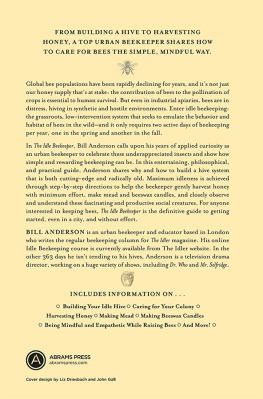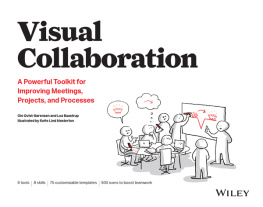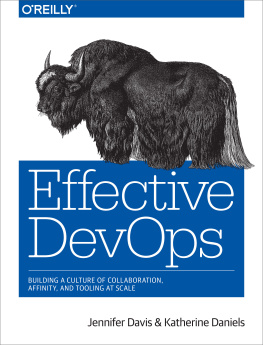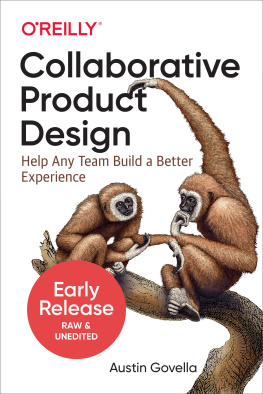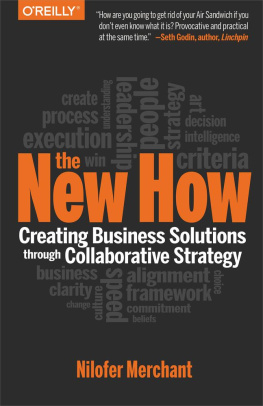Its Complicated: Our Love/Hate Relationship with Collaboration
Collaboration is a skill that many agree is crucial to deal with big, complex challenges where causes are unclear, and the knowledge and abilities required are diverse. We need to be able to harness the energy of lots of different kinds of people productively, without getting mired in conflict or hiding out on our own where we feel safe and in control. Collaborating well doesnt happen naturally; it requires an understanding of what helps teams come together, and how to avoid or push back on forces that get in the way.
Working closely with different types of people to solve difficult challenges is something we say we value. Many blog posts and advice columns praise the virtues of collaboration as critical to how we work now, and schools have begun teaching it as a critical skill for the 21st century. We know that we cant solve the complicated problems before usfrom climate change to artificial intelligence to health care for our exploding populationwith just a few people who think and act the same. When it goes well, collaboration brings out new ideas and joins varied skills to create something truly inspiring. But when it goes wrong, it drives us back into safe groups with defined rules where we can focus on something thats easier to control.
And it does go wrong, because the reality is that most people arent taught how to work in a collaborative environment, with all of its messy interpersonal dynamics. What Ive learned from studying and practicing collaboration in many different settings is that getting it right doesnt happen on its own. Often, successful outcomes are not very collaborative at all, but rather the result of someone spending hard-won political capital to drive a vision they care deeply about, whether others are on board initially or not. And at the end, it doesnt even feel much like a victory. Theres no time to celebrate when they must now spend months rebuilding the relationships they called upon and shoring up their political capital for the next new idea campaign. Its exhausting!
When collaboration fails, its almost a nonevent. Few teams actually come together and launch something absolutely, catastrophically bad. For the most part, collaborations simply dissolve and everyone goes back to the status quo, back to their silos, back to creating the safe, achievable Band-Aid solutions that are easiest to implement. Except most of those involved now have a bad taste in their mouthsfor other teams, for leaders, and for collaboration itself.
The collaborations that go off the rails share some common elements, just as the successful ones do. In developing this book, Ive spoken with people in many different fields to understand how they team up, what works, and what doesnt to help us get our arms around it. The insights Ive gleaned from speaking with different types of collaboratorseducators, product developers, aeronautics experts, ER doctors, and civil servantscan be applied widely to make collaboration less painful and more productive.
We need to get better at managing diverse groups of people working together, because working in silos that we can control wont get us where we need to go. Eventually, those Band-Aid solutions become unworkable; breakthroughs are needed. Sooner or later, the breakthrough will come, maybe from a team who just got lucky. But being able to come together to solve problems is too important to leave to luck. Getting different people to work together to solve complex problems that affect us all is a critical 21st-century skill thats worth mastering.
Why I Wrote This Book
My inspiration for writing this book was watching well-intentioned, capable leaders say all the right things about collaboration and teamwork, only to fumble when trying to pull it off. They express the need to get wider perspectives on initiatives, to improve cross-functional teamwork, to change their order-taking cultures, but in the end they reveal a predefined solution and ask, Any questions? Some leaders simply shove a team together into a conference room with a problem to solve and hope for the best. Or, they bring in outside consultants to make the magic happen, and it does, right up until it comes time to take the ideas back inside and it all falls apart. Leaders may think that they love collaboration, but many just dont know how to embrace it.
Because its so important, getting good at collaboration cant require an overnight shift in the way an organization operates. Ive witnessed, and interviewed others about, huge transformation efforts within large, established organizations where the natural environment isnt conducive (or is downright hostile) to working across silos that can be controlled independently. Attempting to change that environment wholesale is likely to fail since there are too many antibodies you have to contend with. Startups have an advantage in that they have less inertia in the culture and its approach to working together. But even these organizations can resort to just executing on known problems, deferring more complex questions until tomorrow when the company will be (hopefully) more stable, only to find themselves just as stuck when that day comes. Startups carry a level of pressure that favors independent action just as much as large companies.






